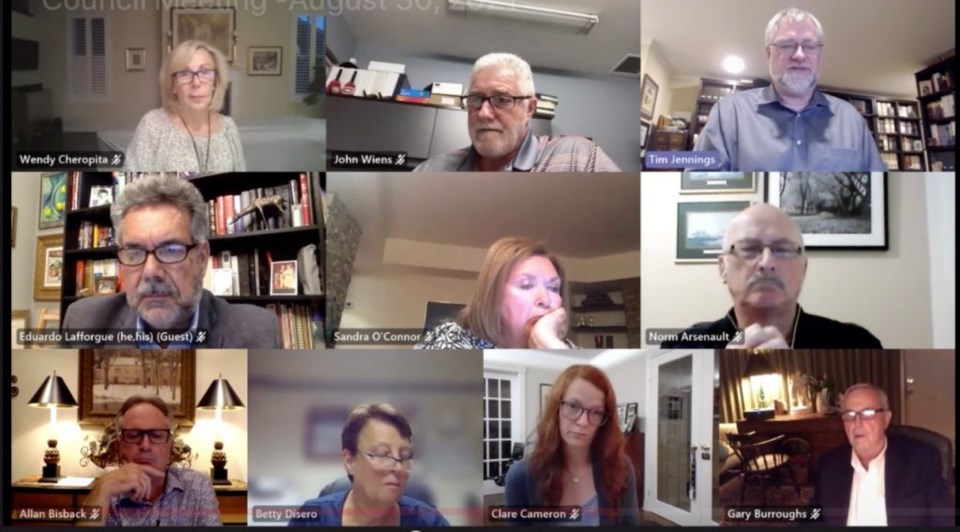
An effort to move to adopt a municipal accommodation tax in Niagara-on-the-Lake met with some resistance Monday, from the business community and from some councillors.
Lord Mayor Betty Disero wanted to open the discussion of the tax, seeing it as a way to pay for infrastructure projects for which the town has no budget and no money, she said.
She was suggesting a two per cent tax to begin with, increasing to three and then four per cent.
The strongest opposition for the tax was over the timing — local businesses are struggling to survive a pandemic, and a new tax will not help the tourism industry at this time.
Tim Jennings, CEO of the Shaw Festival, warned council they don’t have the information they need to understand the impact of the tax, and spoke of tourism strategy that was necessary to allow gathering and analysis of information, and input from the industry.
He spoke of the significant contribution of the Shaw to the local economy, which could be harmed if visitors decide to reduce their overnight stays due to the tax.
“We are solidly against implementation of a MAT without benefit of a tourism strategy, and wide consultation, as it could be very detrimental to the speed of recovery efforts of the town’s business sector.
He said it could seriously impact the Shaw “in detrimental ways, since we work on very small margins as a charity between surplus and deficit.”
Eduardo Lafforgue, president of the NOTL Chamber of Commerce and NOTL Tourism, also spoke to the timing of suggesting a new tax now, and supported waiting until a tourism strategy could be developed.
“There seems to be an ongoing misunderstanding about what the local tourism industry brings to the town and its contribution to the community, its development and the creation of value for its residents,” said Lafforgue. “Indeed, so many of us settled in Niagara-on-the-Lake to partake of the amenities, services and experiences provided by NOTL’s tourism providers.”
The tourism industry and, in particular, accommodations, he said, “are among the hardest-hit businesses in any sector, and all are struggling to recover from the worst crisis most of us remember. There could not be a worse time to reignite the discussion about MAT.”
“Nothing has more potential to create division and disagreements within our struggling community,” he added, and several councillors agreed it would cause division and harm relationships in town.
Vintage Hotels also opposes the tax, councillors were told, because of its negative impact on tourism and the division and disagreement it would create in the struggling hospitality industry.
Although several councillors agreed this was a bad time to initiate a new tax, the majority voted to support the introduction of the tax, scaled from two per cent to four per cent over three years, and funds generated be put in a reserve fund tourism-related infrastructure projects, with recommendations from the audit committee in the 2022 budget. They also agreed it be included in the scope of the tourism strategy. Couns. Gary Burroughs, Clare Cameron and Wendy Cheropita voted against the motion.